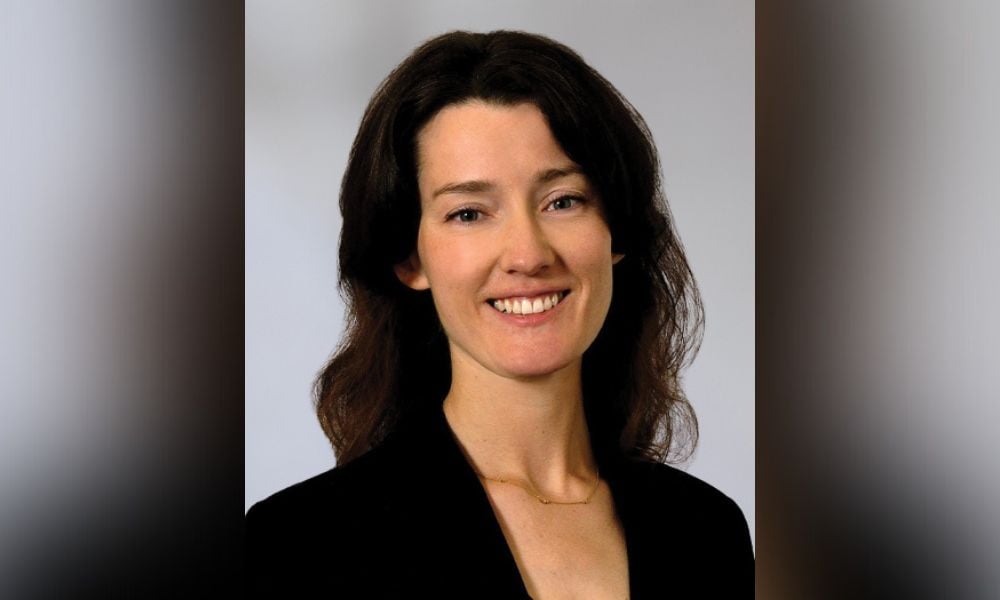Restructuring lawyer says decision confirms the sanctity of the 'single proceeding' model

Ontario Court of Appeal Justice Julie Thorburn has refused leave from an Ontario Superior Court (OSC) ruling that a receiver was not bound by an arbitration agreement that preceded insolvency proceedings.
Kathryn Esaw, a Toronto partner in Osler, Hoskin & Harcourt LLP’s insolvency and restructuring group, lauds the decision.
“Restructuring practitioners see insolvency matters as most effectively resolved in one proceeding, and the decision confirms the sanctity of the ‘single proceeding’ model,” she says. “The result is that there will be less cost in litigating restructuring-related matters, where it’s a good thing to preserve as many of the assets as you can.”
Mundo Media Ltd. (Re) arose when the Canada and US-based advertising and technology company entered two contracts, a publishing agreement and a management and support agreement, with SPay, a US-based sports management technology business. The contracts contained identical arbitration clauses mandating the resolution of disputes under the JAMS Comprehensive Arbitration Rules and New York law.
In April 2019, the OSC placed Mundo in receivership, following which the Delaware bankruptcy court issued a reciprocal enforcement order. The receiver sought judgment for its claim that Spay owed Mundo $4.1 million under the management agreement; SPay countered that Mundo owed it considerable sums under the publishing contract and that it intended to assert that claim by way of set-off.
But SPay also sought a stay of the motion for judgment and an order requiring the receiver to resort to arbitration in New York.
Justice Michael Penny dismissed SPay’s applications. He reasoned that the insolvency proceedings had been properly initiated, that requiring the receiver to arbitrate in New York would be “unfair to Mundo’s creditors,” “inconsistent” with the Bankruptcy and Insolvency Act’s goal of avoiding multiple proceedings, and would not create any prejudice for SPay, which would receive all the “relevant procedural protections available in a New York arbitration” if the matter proceeded in the OSC.
SPay sought leave to appeal to the Court of Appeal.
But Thorburn confirmed that the single proceeding model applies to insolvency proceedings. The jurisprudence had established that a creditor “who cannot claim to be a stranger to the bankruptcy, has the burden of demonstrating sufficient cause to have the proceedings fragmented across multiple jurisdictions.”
As Thorburn saw it, Penny had correctly concluded that SPay was not a “stranger” to the insolvency proceedings merely because it sought to set off the monies owing to Mundo. He had not erred in rejecting SPay’s argument that the single proceeding model applied only to claims against a debtor and not to claims by a debtor.
Thorburn noted that Ontario’s International Commercial Arbitration Act (ICAA) specifically allowed courts to find that an arbitration agreement was inoperative.
“This express carve-out, read in conjunction with the broad discretion that courts exercise under s. 243 of the BIA in supervising bankruptcy matters, enable bankruptcy courts to preclude the operation of the ICAA by virtue of the operation of the single proceedings model,” she concluded.
Nor did SPay qualify as a “stranger to the insolvency proceeding” to avoid the single proceeding model. The fact that SPay had not filed a claim against Mondo, that it proposed to assert a set-off instead, and that it did not intend to make a claim against the estate did not obviate the fact that had SPay commenced an action against Mundo, it would then be a creditor subject to the single proceeding model.
“The question then is, what difference does it make, if any, that the third party seeks to reduce or eliminate the amount payable to the debtor by way of a set-off but does not issue a claim seeking those same monies from the debtor?” Thorburn asked.
Although Canadian law distinguished between claims and set-offs, that distinction, in Thorburn’s view, “. . . may be less significant in the context of bankruptcy as the treatment of the bankrupt estate’s largest account receivable is inextricably interwoven with the bankruptcy proceeding.”
SPay, therefore, was not a stranger to the bankruptcy “because the outcome of its proposed set-off will determine both the amount of Mundo’s single biggest account receivable and the size of the bankrupt’s estate, thereby affecting all other creditors.”
In the result, Thorburn dismissed the application for leave to appeal.
But as Esaw sees it, room remains for lawyers to pursue the “stranger to the proceeding” argument.
“The court was very careful to confine its analysis to the specific facts of this case, and I don’t believe that the decision indicates that contractual terms won’t be respected.”







